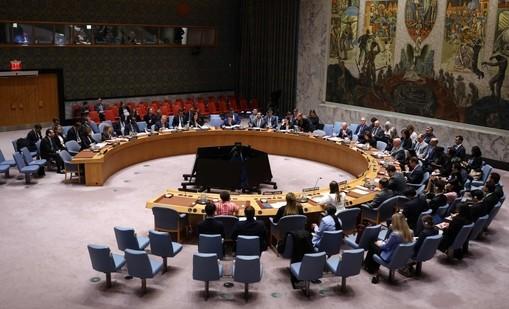
Was LeT involved? UNSC asks Pak on J&K attack, refuses to accept ‘false flag’ claim
In a recent development, the United Nations Security Council (UNSC) members have refused to accept Pakistan’s “false flag” narrative on the Pahalgam attack in Jammu and Kashmir. The UNSC members, in a closed-door meeting requested by Pakistan, have instead questioned whether the terror outfit Lashkar-e-Taiba (LeT) was likely involved in the attack. This has raised concerns about the true nature of the attack and the role of Pakistan-based terrorist organizations in perpetuating violence in the region.
The Pahalgam attack, which took place on October 11, 2022, resulted in the killing of three civilians, including two tourists, and injuring several others. The attack was carried out by unidentified terrorists, who targeted a bus carrying tourists in the popular Pahalgam tourist destination.
Pakistan, in an attempt to deflect international scrutiny, had claimed that the attack was a “false flag” operation, designed to discredit the country and its security forces. However, the UNSC members have rejected this narrative, citing credible evidence that suggests otherwise.
According to reports, some UNSC members brought up the targeting of tourists on the basis of religion, which is a clear indicator of a terrorist attack. The fact that the terrorists specifically targeted a bus carrying tourists, who were predominantly from a specific religious group, suggests that the attack was motivated by religious extremism.
The UNSC’s refusal to accept Pakistan’s “false flag” narrative is significant, as it indicates that the international community is not buying into Islamabad’s attempts to shift the blame. The UN body has consistently condemned terrorism in all its forms and has urged countries to take concrete steps to prevent and combat terrorism.
The involvement of LeT, a Pakistan-based terrorist organization, in the Pahalgam attack is a serious concern. LeT has a long history of perpetrating terrorist attacks in India, including the 2008 Mumbai attacks that killed over 160 people. The organization has also been involved in several other terrorist attacks in India, including those in Jammu and Kashmir.
LeT’s involvement in the Pahalgam attack would be a significant escalation of violence in the region, as it would indicate that the organization is now targeting civilians in Jammu and Kashmir. The fact that the UNSC members have questioned LeT’s involvement in the attack suggests that they are taking a serious view of the situation and are urging Pakistan to take concrete steps to prevent the use of its territory by terrorist organizations.
The UNSC’s refusal to accept Pakistan’s “false flag” narrative also sends a strong message to Islamabad that the international community will not tolerate attempts to shift the blame for terrorist attacks. Pakistan has a history of using terrorist organizations to target its enemies, including India, and has consistently denied any involvement in terrorist attacks.
However, the evidence suggests otherwise. LeT, which is based in Pakistan, has been involved in several terrorist attacks in India, including the 2008 Mumbai attacks. The organization has also been linked to other terrorist organizations, including the Taliban and Al-Qaeda.
In conclusion, the UNSC’s refusal to accept Pakistan’s “false flag” narrative on the Pahalgam attack is a significant development in the ongoing struggle against terrorism in Jammu and Kashmir. The involvement of LeT in the attack, if confirmed, would be a serious escalation of violence in the region and would indicate that the organization is now targeting civilians in Jammu and Kashmir.
Pakistan must take concrete steps to prevent the use of its territory by terrorist organizations and must work with the international community to combat terrorism. The UNSC’s refusal to accept Pakistan’s narrative is a clear indication that the international community will not tolerate attempts to shift the blame for terrorist attacks and will hold countries accountable for their actions.



